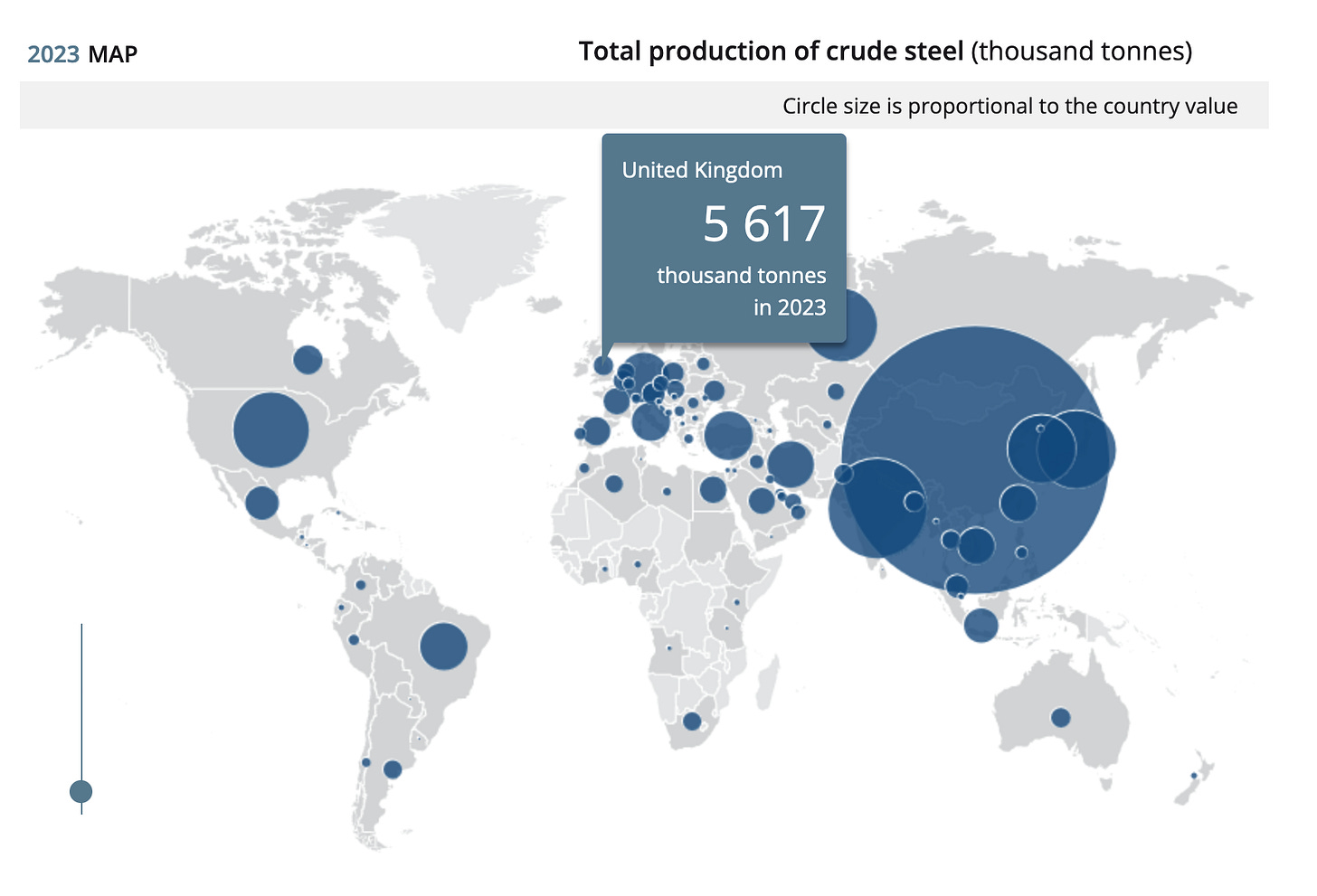Stop the Steel
On the imminent end of the British steel industry.
“We die only once, and for such a long time.” – Molière
Sir Henry Bessemer was one of England’s most prolific inventors of the 19th century. He made his first fortune by leveraging steam engine technology to produce bronze powder, a key ingredient in gold paint at the time. Other inventions described in his remarkable collection of 129 patents include “military ordnance, movable dies for embossed postage stamps, a screw extruder to extract sugar from sugar cane, and others in the fields of iron, steel and glass.” Bessemer’s work on the commercial production of steel would seal his place in history, and the process that bears his name made his home country a global leader in that all-important commodity.
Bessemer found that blowing air through molten pig iron removed key impurities, and careful reintroduction of carbon and manganese led to a scalable industrial process. As with most step-change inventions, the exact attribution of who-did-what-when is a bit murky; English metallurgist Robert Forester Mushet is credited with having performed the original experiments, while American inventor William Kelly would later claim that Bessemer all but stole the concept from him. Attribution aside, the Bessemer Steel Process fundamentally altered the world economy, and many involved made considerable fortunes.
Although the UK wouldn’t lead the world for long in tonnes of steel produced—the US and Germany soon surpassed it—the country did continue to grow domestic production for more than a century, peaking at 28.3 million tonnes in 1970. Since that time, production has steadily declined, and 2023’s total of 5.6 million tonnes marked the lowest level since before World War II.
Few commodities have triggered more protectionist politicking than steel; a vibrant domestic supply chain is considered paramount to a country’s national security and prestige. There may be no better example than the $14 billion merger plan by US Steel and Nippon Steel, which has provoked opposition from Donald Trump, J.D. Vance, Kamala Harris, and President Joe Biden, who reportedly plans to block it. “US Steel should remain American owned and American operated,” Harris told a cheering Pennsylvania crowd on Sept. 2.
As with other critical industries, China has made domination of the steel trade a national priority, and it now accounts for more than a billion tonnes of annual production (or 180 times the UK’s total). China’s willingness to flood the market with cheap supply has caused upheaval in many countries, and the UK is no exception. While smaller on the global scene than it has ever been, the UK steel sector still supports over 34,000 well-paying jobs, and the fate of those employees remains a matter of urgent consideration in London.
Unfortunately for Britain’s steelworkers, national priorities sometimes collide. Ed Miliband, career politician and the newly appointed Secretary of State for Energy Security and Net Zero, has let loose a series of radical policies that are all but certain to snuff out the meager remnants of this once-proud industry. Despite claims that saving Britain’s steel sector is a top priority, the climate agenda of Starmer’s newly elected Labour government effectively mandates its end—though not before billions more are wasted on attempted cures certain to be worse than the underlying disease. Let’s explore what to expect in the months and years ahead.



